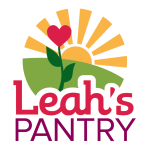 Leah’s Pantry is so excited to share more about our trauma-informed approach to nutrition programs. Since this concept is newer to the world of public health nutrition, we wanted to do a Q&A with Monica Bhagwan, the brains behind this movement within Leah’s Pantry.
Leah’s Pantry is so excited to share more about our trauma-informed approach to nutrition programs. Since this concept is newer to the world of public health nutrition, we wanted to do a Q&A with Monica Bhagwan, the brains behind this movement within Leah’s Pantry.
Q: Monica, since this is new territory within the world of public health nutrition, can you share what trauma-informed nutrition programming means to you?
It means that beyond thinking about WHAT we are providing, we are critically considering HOW we provide education, tools, and resources. Most of the people targeted by public health nutrition interventions have experienced trauma or a significant degree of toxic stress that creates both practical and emotional barriers to health and good nutrition. Providing nutrition information, teaching cooking skills, and improving food access, while well-intentioned, is not enough. If these interventions are to be effective, they have to be client-centered and include mental and emotional wellness within the concept of health. Providers have to address the following questions:
- “What are the emotional experiences of our clients when they participate in our programs?
- “How do stressful and traumatic experiences shape our clients’ relationship to food, nutrition, and self-care?”
- “In what ways do our policies and practices create a positive experience that levels power differences? Reduce shame, anxiety, and tension? Ensure feelings of safety, connection, and dignity?
This also means that providers must look at how stress and trauma affect their staff’s capacity to provide services.
Q: Why do you think a trauma-informed approach to nutrition programs is important?
Trauma, characterized as an experience where one’s feelings of safety and power are overwhelmed, can have long-lasting implications for people’s health and wellbeing.
Trauma also deeply affects people’s relationship to food and decision-making. Often times, nutrition programs and interventions overlook those things or end up re-triggering the feelings of powerlessness making them ineffective, or worse. However, what is also exciting and even more important, is that food and nutrition programs are an excellent opportunity to address trauma and bring people into holistic health. The research says that enhancing people’s skills for self-care and deepening their connection to themselves and their community builds resilience to and recovery from trauma. Throughout human history, food has played this central role in care-taking and connection. Public health nutrition approaches that incorporate this deeper meaning of food can better meet people on a more fundamental level.
Q: What caused you to make the connection between trauma and eating behaviors? What were you seeing the community to make the lightbulb go off?
My interest in drawing a connection between trauma, toxic stress, and eating behaviors began when I led a garden-to-table afterschool program for youth living in public housing in Hunters Point. The children had a hard time staying engaged, self-regulating, and managing emotional triggers. It was hard to get them to focus even on fun activities like cooking. Their emotional reactivity was very high and no wonder, they were dealing with too many levels of trauma. I also saw how many coped with stress and hurt by overeating, hiding food, and binging on junk food. I decided that it was necessary to prioritize emotional safety and connection while also engaging the kids in cooking healthy dishes in my program.
But it wasn’t until I began working at Leah’s Pantry where I found the support and opportunity to explore how to create and run nutrition programs that incorporated an understanding of trauma. I was immediately struck by how Food Smarts was such a participant-responsive curriculum and how Leah’s Pantry actively sought to innovate and evolve. I believe this is why we were invited by Bridge Housing and the Healthy Generations Project to run what became the Feeding Potrero program in Potrero Hill public housing. I was very excited to be able to conduct a nutrition program explicitly within the context of trauma-informed community building. This project has been an excellent proving ground for taking a new approach to food and nutrition interventions. Leah’s Pantry supports the meal preparation and nutrition programming as part of an intervention where good nutrition is part of a 5-part strategy to addresses toxic stress for children and families. Over the past 3 years, we have seen not only how people’s behaviors and attitudes toward healthy food has changed, but that these changes are more meaningful when they are done in a trauma-informed approach.
Q: What’s one goal you have for Leah’s Pantry’s trauma-informed work over the next year?
Leah’s Pantry wants to collaborate with a site that would like to make trauma-informed nutrition or food programs part of its strategy to empower low-income communities to have healthier lives. We would love to either collaborate with them to make current programming, such as a food pantry or nutrition class, more trauma-informed. Or we could work with them to identify agency goals to address their clients’ food or nutrition needs and implement a program that uses food as a way to build skills, connection, and resilience. Doing this means really listening to and supporting both clients and staff as well as cultivating community voice and leadership. This is a process that takes time and strong relationship-building. This is not a one-size-fits-all approach. But we believe that if we broaden what it means to nourish we can meaningfully impact a community’s health.
